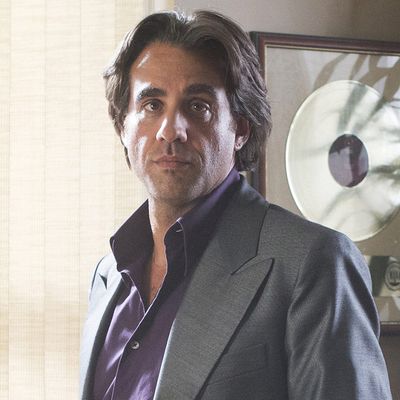
Since its ValentineÔÇÖs Day premiere, HBOÔÇÖs big-budget, 1970s rock-and-roll drama Vinyl has struggled mightily to capture both viewers and buzz. The series, a collaboration between Boardwalk Empire creator Terence Winter and film icon Martin Scorsese, opened with fewer than 1 million same-day viewers and has since seen its Sunday audience drop by more than 25 percent. More distressingly, while early reviews of the show tipped slightly positive, Vinyl has failed to generate the sort of ecstatic critical praise or watercooler buzz on which HBO relies. These problems wonÔÇÖt prevent the show from getting a second season: The network announced a renewal hours after broadcasting the premiere. But late Friday, word got out that Winter ÔÇö whose association with HBO goes all the way back to The Sopranos ÔÇö was being replaced as showrunner. Growing pains are hardly unprecedented for HBO dramas, but the decision to sack someone as closely associated with the network as Winter was a shocker ÔÇö and, perhaps, a sign of just how desperate the network is to ensure Vinyl remains in its rotation for years to come.
ItÔÇÖs not that HBOÔÇÖs future is somehow at stake with Vinyl: The only series on HBO which can rightly be called all-important is Game of Thrones, and itÔÇÖs doing just fine. But save for that one very big hit, HBO finds itself in the middle of a years-long creative recession when it comes to dramas. While True Detective was a massive success its first season, it collapsed in its sophomore year, leaving its future in limbo. The Leftovers is a great show, but many critics were slow to warm up to it, and same-day ratings for the show dropped sharply in season two (in part because it lost its freshman year advantage of a True Blood lead-in). HBO has already decided Leftovers will end after its third season, giving it roughly the same lifespan as Aaron SorkinÔÇÖs The Newsroom (2012ÔÇô2014). SorkinÔÇÖs media critique had its defenders, but on balance, it received far more darts than laurels, and is symptomatic of the networkÔÇÖs recent drama struggles.
Fact is, HBO hasnÔÇÖt come up with an undeniable drama hit since GoT bowed in 2011. And while the network has faced creative dry spells in the past, itÔÇÖs never done so while operating in a competitive landscape where so many rivals (Netflix, Amazon, AMC, FX, Showtime) were churning out prestige programming on a par with the pay-cable pioneer. This new reality helps explains why HBO made such a major bet on Vinyl: The nearly two-hour pilot, directed by Scorsese, carried a price tag upwards of $30 million, industry sources have told Vulture and other media outlets. No network ÔÇö not even HBO ÔÇö spends that sort of sum unless it believes it has a potential signature series on its hands. HBO clearly believed it had a possible game-changer with WinterÔÇÖs show, making it all the more painful when audiences never really showed up, and when even critics who liked the show were relatively restrained in their praise. This disappointment suggests a reason why execs felt it necessary to ÔÇ£make a change in the creative direction of the show,ÔÇØ as the network put it in a statement Friday.
Winter is the kind of trusted producer to whom the network historically wouldÔÇÖve given a wide berth. And on the comedy front, HBO can still afford to be forgiving: ItÔÇÖs had better luck generating buzz with half-hours (Girls, Veep, and Silicon Valley have all been zeitgeist shows) and production costs are much smaller. HBO didnÔÇÖt replace the creators of Togetherness, Looking, Doll & Em, or Enlightened in between their respective first and second seasons, even though the viewership for all four series was tiny. But after a string of big-budget drama disappointments, HBO arguably doesnÔÇÖt have the luxury of a laissez-faire series oversight anymore. It needs the second season of Vinyl to be markedly better than season one, and it needs to convince viewers who opted out of the show early onÔÇö or those who never bothered to tune in ÔÇö that thereÔÇÖs a reason to watch.
HBO declined to make executives available to comment for this story, and a PR rep for Winter did not respond to an interview request, so itÔÇÖs not yet clear whether the network rejected the writerÔÇÖs plans for season two or if some other conflict led to his departure. It doesnÔÇÖt seem a stretch, however, to assume HBO brass felt the need to protect their investment in Vinyl outweighed whatever bad PR or hurt feelings might result from the change. Replacing Winter doesnÔÇÖt guarantee Vinyl will magically fix itself creatively, or that viewership and buzz will suddenly soar when the show returns. But it does offer HBO the chance to reset the narrative surrounding the series, increasingly the odds Vinyl becomes a fixture on the network instead of ending up the TV equivalent of a one-hit wonder.

